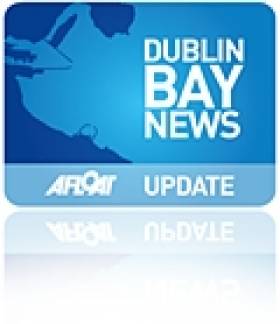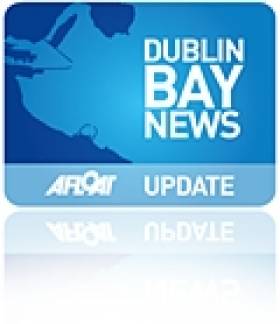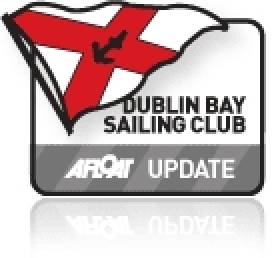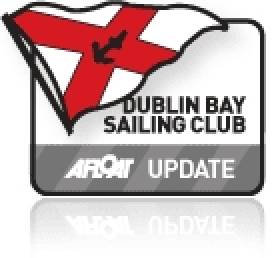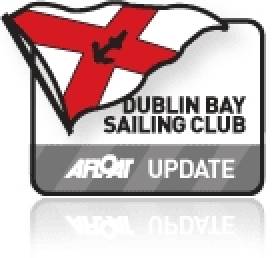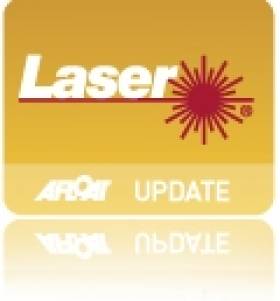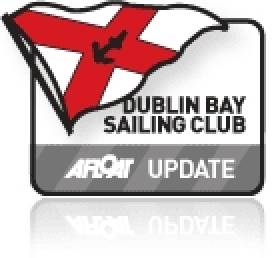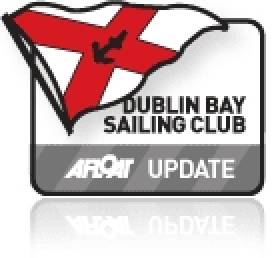Displaying items by tag: Dublin Bay Sailing Club
#cruiserracing – Can you successfully incorporate a full-blown National Championship into an established neighbourhood regatta? We're going to find out from June 24th to 27th, when the ICRA Nationals and the Sovereigns Cup in Kinsale are combined into one four day event, the result of the joint efforts of two sets of organisers and administrators. W M Nixon takes a look at how this situation has developed and discovers four of the top men in the marine and sailing scene have significantly different views as to how big regattas and the ICRA Nationals should be staged.
The Irish Cruiser-Racer Association emerged from an attitude of complete realism about the contemporary sailing scene in 2002. Back then, the Irish economy was starting to develop a head of steam, and people were buying potent performance-cruisers which just begged to be raced offshore. Yet changing social attitudes meant that the traditional concept of an offshore racing crew being prepared to spend seven or eight long weekends away every summer campaigning the boat in classic offshore races simply wasn't acceptable in the new world of shared family responsibilities.
But the short-lived ideal of making classic offshore racing more family-friendly was also soon seen as unattainable except for those few extra special family crews – we can all think of one or two examples - whose very uniqueness in their shared enthusiasm for rugged offshore sailing day and night only serves to emphasise that what they like doing is simply not for the majority of sailing families.
For sure, we admire them without reservation. But we know that it won't float our family's boat. For although the totality of Irish "cruiser-racers" in 2002 included several out-and-out racing machines which were vigorously campaigned inshore and offshore, the reality is that most of the fleet were the sailing equivalent of those 4x4 SUVs which block up the parking in many a leafy and affluent suburb.
Usually, the most adventurous outing such vehicles will go on is the daily school run. There's no way their loving owners plan an aggressive demonstration of their pride-and-joys supposed off-road ability. But they do seem to find it reassuring to know that if for some reason they suddenly have to go across rough terrain, the vehicle can manage it even if the driver is scared stiff. And of course, in the unlikely event that a horse-box needs to be towed – well, no problem......
So, thirteen years ago as sailing's equivalent of the SUV began to take over marinas, two leading figures in sailing administration realised that, far from changing the new increasingly family-oriented way of doing things and forcing boats well capable of going offshore to do so even if their crews didn't particularly want to, what was needed instead was a new kind of event to suit the way that most people wanted to sail with their new performance cruisers.
The late Jim Donegan of Cork, Commodore of the South Coast Offshore Racing Association, was ocean racing aristocracy – his grandfather Harry owner-skippered the 18-ton cutter Gull to third place overall in the first Fastnet Race in 1925, and consequently became one of the founder members of the Ocean Racing Club which six years later in 1931 became the RORC, while Jim himself was to go on to win many an offshore contest.
Fintan Cairns of Dun Laoghaire has given generously of his energy and time over the years to sailing both as an active participant, a race officer, and an administrator – he was Commodore of Dublin Bay Sailing Club at a period of its healthiest expansion. Like Jim Donegan, in 2002 he was hugely enthusiastic about racing boats with lids, and he loved the offshore game. Yet in the Autumn of 2002, the two of them convened a national assembly in Kilkenny in order to form an organization whose primary aim would be to create the kind of event that would be attractive to the new generation of cruiser-racer owners, people whose boats could go offshore, but preferred the nice regatta atmosphere and home-to-port-at-the-end-of-the-day format.
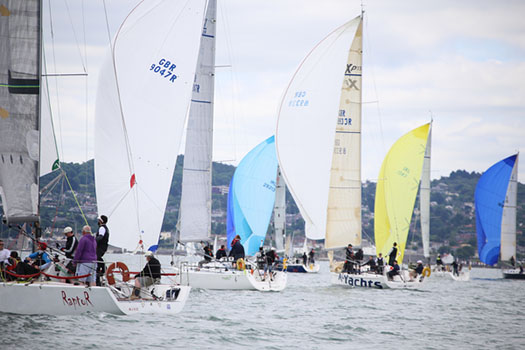
A nice regatta atmosphere, and back to port at the end of the day.....the racing in the ICRA Nationals 2014 at the Royal Irish YC in Dun Laoghaire neatly captures the purpose of the organisation as envisaged by the founders in 2002. Photo: David O'Brien
Thirty-one years earlier in 1971, the Irish Sea Offshore Racing Association had been formed by enthusiasts like Hal Sisk of Dun Laoghaire and Dickie Richardson of Holyhead on the assumption that their new organisation should be related to an area of good and extensive racing water, and for a while it worked very well. At its peak, ISORA was attracting a total entry of 107 different boats from all arts and parts into their annual season-long championship in which – if you were intending to be a serious contender – you had to think of racing at least seven events.
That meant seven weekends which, in some cases, inevitably meant leaving your home port on the Thursday and maybe not getting back until Monday morning or even later. Fine and dandy in its day, but its day didn't last too long. Maybe fifteen years in all. By then, new attitudes to family life and a tendency to concentrate one's sailing on a few big events combined with other less time-consuming smaller local events, meant that the ISORA model was no longer valid.
Yet boat numbers in ports kept increasing, so the Irish Cruiser Racing Association came into being at that November meeting in Kilkenny in 2002 to provide Irish-based regattas which, in some cases, would involve trailing the smaller boats to distant venues still on the island of Ireland, instead of sailing them many miles to others ports across the channel.
For old salts, the idea of an offshore racing association based on a land mass, and the notion of road-trailing offshore racers across that land mass to a regatta, seemed absurd. But this was only the beginning of it. For unless there was an unexpected demand for it, the new ICRA programme had no plans to include any overnight sailing except where it involved the training up an Irish Commodore's Cup team, as this was soon within ICRA's ambit.
Basically, what it meant was that ICRA's purpose was to organize an annual national championship regatta of four days at one of Ireland's main sailing centres, chosen on a rotational basis, they would also honour a "Boat of the Year", and every second year they would assemble a Commodore's Cup team.
Far from owners being faced, as they were in the old days, with the challenging demands of preparing a boat for offshore racing and then assembling an experienced crew from a panel in which the ideal number would be twice the number required to crew the boat, instead they were now offered an agreeable pattern of day sailing at some pleasant venue, and much socialising with it, while the results were efficiently calculated by ICRA's travelling road show of race administrators and number crunchers.
Yet for anyone who thought this wasn't really quite rugged enough, there was ruggedness-by-association with the Commodore's Cup campaigns. And all this went particularly well as the Irish economy went stratospheric from 2002 until 2008, so much so that at one stage Ireland actually fielded three different Commodore's Cup teams which even had the luxury of competing against each other. There's posh for you......
But it was too good to last, and ironically the economy had already fallen off a cliff in 2010 when a very serious single team Irish Commodore's Cup campaign, carefully led by Anthony O'Leary, finally won the Commodore's Cup. Also during 2010, the ICRA Nationals in late May were hosted by the Royal St George YC in Dublin Bay, which provided immediate access to the largest fleet of cruiser-racers in Ireland. Thus numbers were easily kept up to a respectable level and in all – the brutal recession notwithstanding – it was a great year for ICRA, with the 2010 Commodore Barry Rose, who had also been the Commodore's Cup Team Manager, deservedly accepting the Mitsubishi Motors "Irish Sailing Club of the Year" award after this great season.
But inevitably, things were more subdued for the next three years as the longterm ill-effects of the recession took hold. So though ICRA Nats were held in Crosshaven in 2011, Howth in 2012, and Fenit on Tralee Bay in 2013, resources were so scarce that the decision was taken not to attempt a defence of the Commodore's Cup in 2012.
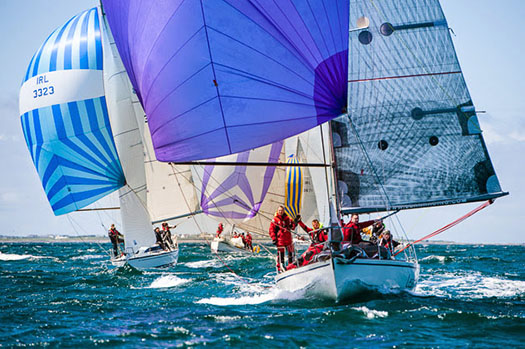
The images which came back from the ICRA Nationals 2013 in Tralee Bay suggested good sailing, but for two days the stormy weather caused a complete shut-down. Photo: Bob Bateman
When one cornerstone is removed, others are examined in more detail. The 2013 ICRA Nationals in Tralee Bay had the misfortune to coincide with a period of very unsettled weather which emphasised the fact that many of the top boats had travelled a long way by both sea and land to this gallant outpost of the Irish offshore racing scene to link up with their WIORA counterparts. But although some spectacularly sunny photos of racing in strong winds and bright sunshine emerged, the reality is that they barely had two days of viable competition as the rest of the programme was blown out in utterly miserable storm conditions.
Coming as it did at a time when the economy was barely faltering back into life, this unlucky outcome led to it being open season for suggestions as to the way ahead. There were those who wondered if people's seemingly ever-decreasing sailing time might be better used if the ICRA Nationals were combined into some established events, pointing out that a natural annual rhythm was already there with the biennial Volvo Cork Week rotating with the biennial Volvo Dun Laoghaire Regatta to provide easy access for large local fleets.
When set against the all-Ireland idealism of the founders, this was anathema to many, as the stand-alone national event, with the effort made to go anywhere in Ireland where you could find substantial local cruiser-racer fleets, was seen by some as central to the ICRA ethos.
However, things were put on hold during 2014 with a well-supported if locally-emphasised ICRA Nationals hosted by the Royal Irish YC in Dublin Bay in June, and then in July there was a mighty victory in the Commodore's Cup 2014 in a wonderful effort built around quiet background work by team captain Anthony O'Leary.
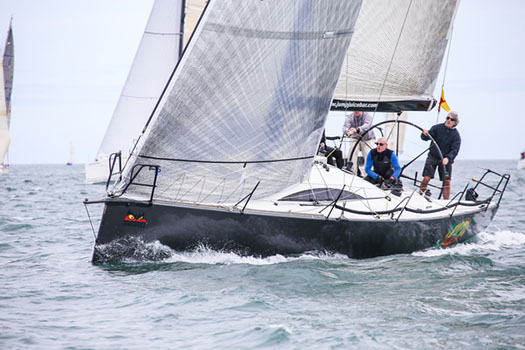
ICRA Nats 2014 in Dublin Bay saw a popular win in Class 0 for the Phelan family's Ker 36 Jump Juice from Crosshaven. Photo: David O'Brien
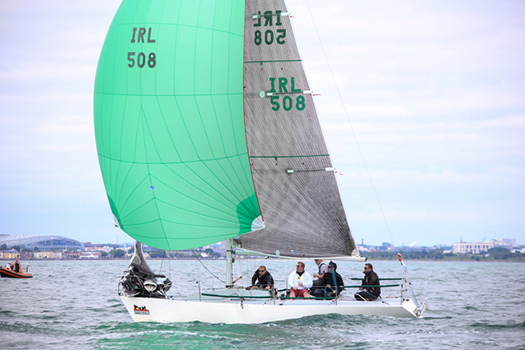
Jonathan Skerritt's vintage Quarter Tonner Quest of the host club was overall winner of the ICRA Nats 2014 at the RIYC. Photo: David O'Brien
But meanwhile, faced with the reality of the recession in sailing, ICRA's senior number cruncher Denis Kiely had quietly been putting out feelers about the possibility of combining the 2015 ICRA Nationals with Kinsale YC's biennial Sovereigns Cup regatta, which has been trundling along since 1995. By the time the great 2014 season was fully under way, it was no secret that this arrangement for 2015 was already in place, thereby guaranteeing – it was hoped – a substantial increase in numbers in 2015 and better overall value for the sailing community, while at the same time taking the ICRA Nationals to another new venue.
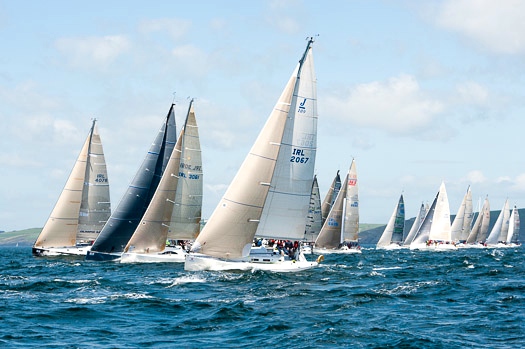
The perfect sailing in the 2013 Sovereign's Cup at Kinsale inspired ICRA officers to seek the link-up for the ICRA Nationals 2015 with the Sovereigns Cup 2015. Photo: Bob Bateman
At first glance, it seemed eminently sensible. But not everyone agreed. It was towards the end of an engaging interview with Commodore's Cup winner Anthony O'Leary at the end of July last summer in his beloved Royal Cork YC, just four days after he and his team had received the trophy on behalf of Ireland on the Royal Yacht Squadron lawns in Cowes, that I witnessed the first significant shot going across the bows of the good ship ICRA/Sovereigns of Kinsale.
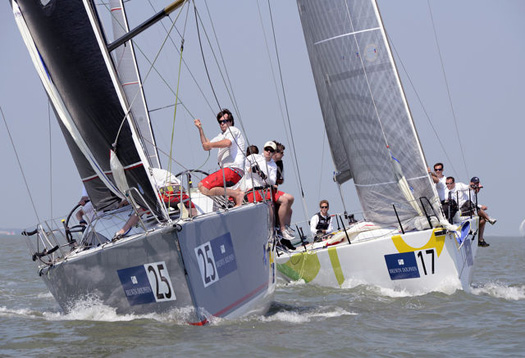
Team Captain Anthony O'Leary's veteran Ker 39 Antix hanging in there to stay ahead of a newer Ker 40 to lead Ireland to victory in the 2014 Commodore's Cup. Photo: Rick Tomlinson
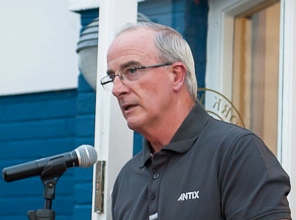
Someone whose considered opinion has to be taken seriously – Anthony O'Leary in thoughtful mood as he speaks at a reception to welcome the Commodore's Cup back to the Royal Cork YC. Photo: Bob Bateman
Anthony O'Leary was quite clear in his mind as to how the Irish cruiser-racing scene should go forward. And just as you should never get into a row with people who buy ink by the barrel, equally you wouldn't dream of openly disagreeing with someone who has just pulled Irish sailing out of the doldrums, so I just sat still and let this broadside roll over me.
"I think it's a mistake to incorporate the ICRA Nationals in the Sovereigns Cup in Kinsale....." he said bluntly. "The Sovereigns is one of my favourite regattas, but it's a friendly intimate business. While the town may have the infrastructure ashore, the marina is always crowded and I don't see how the kind of fleet they hope to attract will be comfortably accommodated there".
"Then too" he continued, "we already have two major alternating four day regattas in Dun Laoghaire and Cork Harbour. It's time to accept that sailing people are seeking to focus on fewer major events, and to give a more compact annual programme their best shot. So let's see how it would work if the ICRA Nationals simply rotated between Volvo Cork Week and the Volvo Dun Laoghaire Regatta".
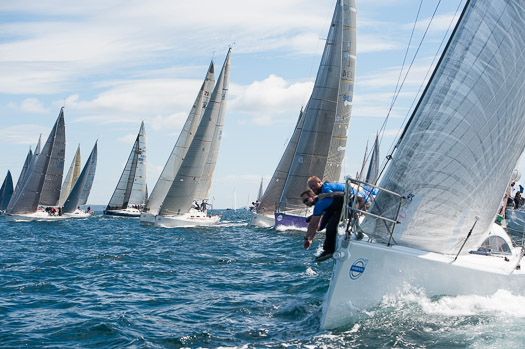
Clean close racing at Volvo Cork Week 2014. There's a line of thought that reckons this regatta could comfortably incorporate the ICRA Nationals. Photo: Bob Bateman
You can see how, in the circumstances, this idea seemed vibrant and immediately attractive. But more recently in an interview with another equally renowned sailor, Tim Goodbody who is Chairman of the Volvo Dun Laoghaire Regatta Committee 2015 there was something said which gave further pause for thought.
Tim Goodbody was totally clear in his own mind about the thinking behind the successful VDLR concept and its ability to provide viable racing for 31 different classes, and as he has helmed to victory both inshore and offshore to the highest levels, while also proving himself a master at designing courses for Dublin Bay, his views carry every bit as much weight as those of Anthony O'Leary.
"You have to remember it's a regatta, not a championship" said Goodbody. "Enjoyment of sport comes first, and the purity of fierce competition second. But of course we're going to provide the best possible starts. And the intention is to have those starts leading into the best possible courses in the conditions prevailing"
"Yet the way we see it, people should be racing just as soon as possible after leaving the harbour. There's nothing which impairs simple sailing enjoyment so much as having to wait around in a perfectly good but maybe fickle sailing breeze, hanging about in frustration while an overly-pernickety Race Officer dithers over setting the absolutely perfect start line".
In the context of the fun-filled suburban sailfest which is the VDLR, that's a perfectly reasonable approach. But is it a proper approach for something which aspires to call itself a National Championship? I rather doubt it, and there's no way the VDLR claims to be a national championship even if the numerous GP 14 Class are calling their enthusiastic participation in the VDLR 2015 the class's "Leinster Championship".
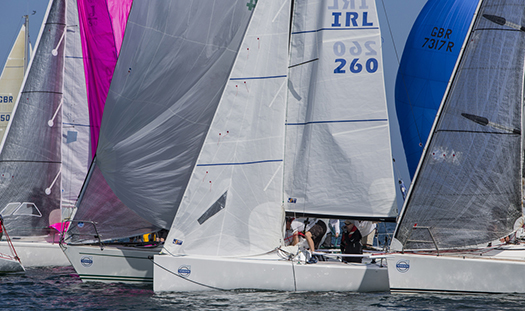
Everyone getting in everyone else's way, but that's part of the fun. The laid-back approach of the Volvo Dun Laoghaire Regatta as seen at 2013's event. Photo VDLR
For, in terms of boat size, the GP 14s will be among the smaller craft taking part in the VDLR, and they can find their own space. However, if you were campaigning a large cruiser-racer in one of the ten IRC classes which have to share the waters of Dublin Bay with 21 other boat classes during VDLR, would you expect to have your part of the event designated as the ICRA Nationals? On the contrary, if you were seriously concerned about the overall good of Irish sailing, you'd probably rightly think this was a spurious claim for what is essentially a fun event.
We were still mulling over the deeper meaning of Tim Goodbody's words in relation to Anthony O'Leary's opinions when this week another big beast in the sailing sphere, Minister for the Marine Simon Coveney no less, also launched into the choppy waters to be met with by those who would hope to rationalise the sailing programme into fewer but bigger international-standard events.
As he was speaking aboard the Naval Service's LE Eithne in Dublin's River Liffey at a reception to boost this summer's joint ICRA Nationals/Sovereigns event in Kinsale, it will be no surprise to learn that he was strongly in favour of it, so perhaps he reckons – unlike Anthony O'Leary - that Kinsale can cope with a substantial influx of visiting boats.
"Two events like this combined at the same time in one venue give extra strength" he said. "I want to see sailing in Ireland become much more ambitious in combining resources to create events which will have true international standing. This is a sport we should be really good at, both in participation and in staging events of world stature. Combining medium-sized events and regattas into one much bigger event like this one in Kinsale is going to be for the long-term good of Irish sailing in particular, and Ireland in general. The planned event is now expected to generate at least €800,000 extra income for the Kinsale area during the regatta period, while there's continuing beneficial spinoff for this harbour town which has added significance as the southern terminal and start point for the Wild Atlantic Way".
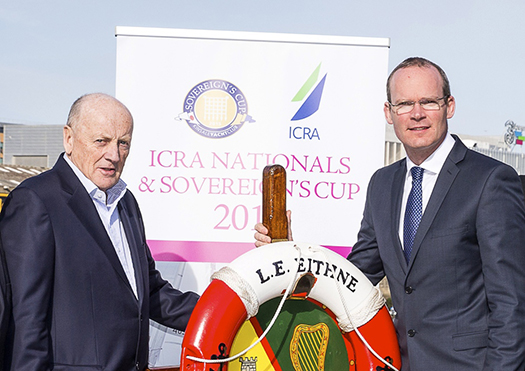
Norbert Reilly, Commodore of ICRA, with Minister for the Marine Simon Coveney at this week's reception aboard LE Eithne in Dublin to promote the combined ICRA Nats and Sovereigns Cup 2015 at Kinsale from 24th to 27th June. Photo: David Branigan
Doubtless we'll be getting spinoff of a different kind about these Ministerial views from the many people around the coast who work long and hard to keep alive those quirky little local regattas and special neighbourhood sailing and boating events which will never be major happenings of international stature, but are an essential part of the fabric of our many and varied maritime communities, and are deeply attractive for discerning visitor who shun crowds and seek out quiet enjoyment.
But as it is, aboard the Eithne we had yet another viewpoint to put into the cauldron of developing opinion, as the concluding speech was made by Nobby Reilly, current Commodore of ICRA. In a conversation with him before he made his speech, Nobby emphasised that the ICRA Nationals 2016 will be a stand-alone event once more, and he can be fairly certain about that, as the venue will be his own home port of Howth.
In the light of this, it should be remembered that in his blunt no-nonsense way, Nobby has done great work in encouraging newcomers into sailing. Earlier this week, I happened to be with some keen sailing folk from Wicklow including David Ryan – Farmer Ryan - whose remarkable Monster Project campaign of racing a Volvo 70 in Wicklow's Round Ireland Race 2014 had drawn on the efforts of Nobby Reilly and ICRA with their Let's Try Sailing campaign last May. This resulted in four wannabe sailors from remote parts of Ireland getting their first taste of the heavy metal with the Monster, and we'll see a film of it on RTE and other channels in due course, after the heroic task of cutting 147 hours of tape down to one hour has been completed.
But in the meantime, Nobby concluded the shipboard reception for this year's ICRA Nationals-with-the-Sovereigns-in-Kinsale with a spot of unexpected banter. "Maybe" says he, "maybe we should stop being concerned about trying to convince people that sailing is inexpensive. For we all know that, as it's a vehicle sport, there's bound to be basic expenditure over and above what you'd get with straightforward athletics and team sports. So maybe we should encourage people to get their kids to take up sailing on the grounds that if they come to like it, then there's no way they'll have the money to do drugs....."
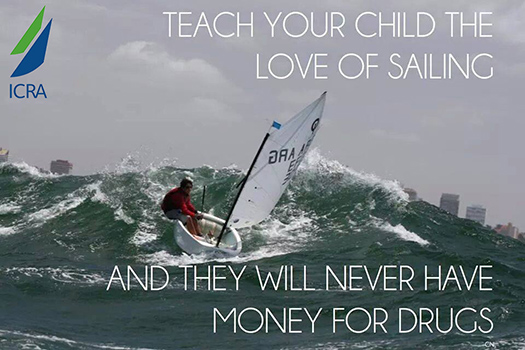
ICRA Commodore Nobby Reilly's positive response to the perceived costliness of sailing
Read also:
Should Irish Cruiser Racing (ICRA) Championships Stand Alone? (July 2013)
The Commodores' Cup – How Ireland Won It & Where It Might Go From Here (August 2014)
#dinghycharter – At the end of the 2014 summer sailing season as we started to look towards the winter racing series and talk of the 1720s racing in the Dublin Bay Sailing Club's Turkey Shoot and Spring Series writes Kenneth Rumball. Our dinghy sailors started to ask what was for them? A bit of head scratching and it was decided that the INSS would charter out our fleets of Lasers and double-handed dinghies to both our junior and adult sailors. Not only would these sailors benefit from having access to a boat to race in but we also supplied an INSS support boat manned by Glyn Williams to give that extra bit of security and also to act as a coach boat giving feedback to our sailors and helping them to progress their sailing. The support boat was also there to support some of our 'own boat' sailors also giving them an extra helping hand.
The 2014-2015 series has been a huge success for our sailors, a shaky start last October where a lot of our sailors who had never raced before all of a sudden were thrown in the deep end and on a race track before they knew where they were. Kenneth and Alexander Rumball who raced in the Fireball and RS400 classes respectively were initially on hand to give helpful hints and advice after races and encourage all sailors along.
It has been fantastic to watch the progress of all our sailors throughout the series which culminated today in the final prize giving of the 2014-2015 series. There were some claims to Silverware from the INSS team with Lorcan Tighe claiming the first Feva trophy in the PY class, Alexander Rumball claiming third in the RS class and Kenneth Rumball and Brian Byrne claiming the overall Fireball trophy.
Plans are already a foot for the DBSC summer racing series, with our fleet available for charter.
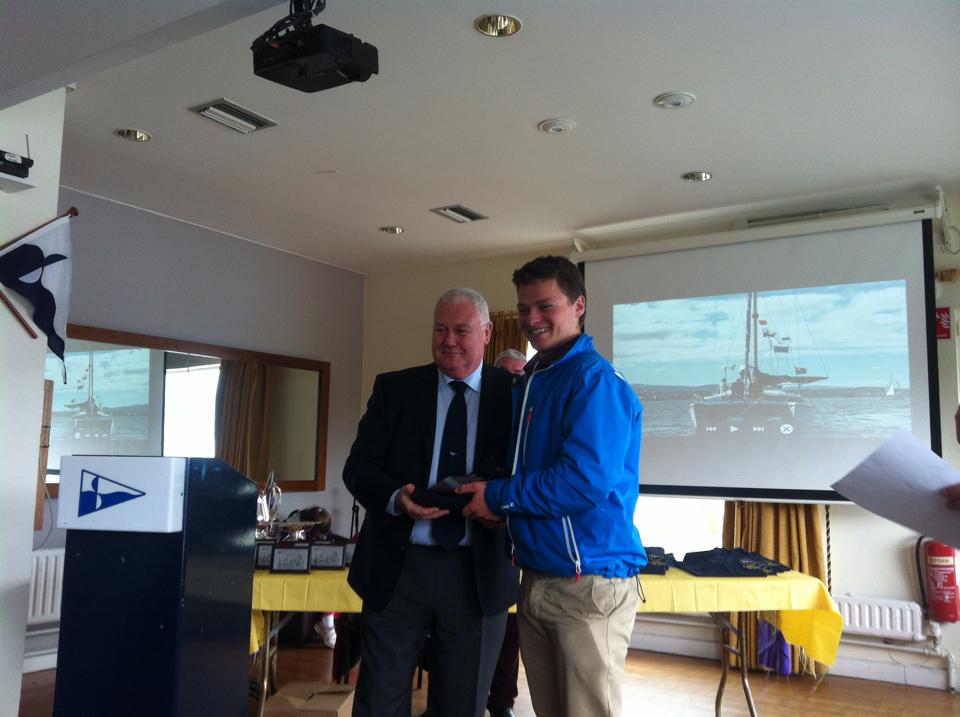
Alexander Rumball who claimed third overall in the RS Class
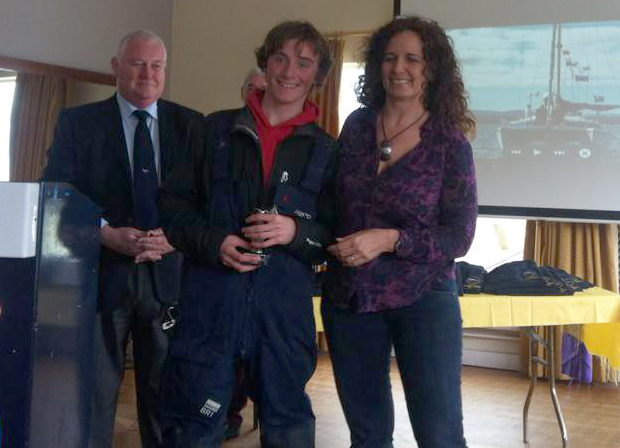
Loran Tighe of the INSS claims the Feva Trophy
Olympic Race Officer To Explain How To Run Yacht Races
#yachtracecourse – Olympic Race Officer Jack Roy is giving a course this Wednesday in the Royal Irish Yacht Club, Dun Laoghaire for all those who want to run races or help on committee boats in any capacity.
The course is also suitable for sailors seeking a better understanding of the racing rules surrounding race organisation and course laying.
With a number of high profile events coming up in 2015, including the Volvo Dun Laoghaire Regatta and the Dublin Bay Sailing Club schedule, Dun Laoghaire will be looking for more volunteers this summer! The cost is €10 (to cover soup and sandwiches). For more click here.
INSS 1720 Sportsboat Wins DBSC Spring Chicken Series
#inss – Nerves of anticipation on board Team INSS yesterday morning as our Race Training Programme got towed out in no wind to the start line of the added race to the Rathfarnham Ford DBSC Spring Series writes Kenneth Rumball of INSS. Team INSS were lying joint second overall going in to the last race with only a point to gain to win the series overall.
The team got out to the race course early as per series co-ordinator Fintan Cairn's instructions to observe a minutes silence in honour of Caroline Leonard prior to the last race.
With a light easterly breeze building Fintan and team wasted no time in laying a quick windward leeward course aided by the Team INSS support RIB to get the windward mark laid quickly. A favoured committee boat bias on the start line saw 'Third Time Lucky' (helmed by Ben Cooke), Team INSS and 'Wolfe' (RstGYC) all coming away tightly bunched from the start line. The two 1720s from the Royal St George tacked off early after the start toward the East Pier with Third Time Lucky, Team INSS and Lady A (RIYC helmed by Collie Byrne) all continuing on starboard tack. Team INSS was the first to peel off and on the return cross it was apparent the right hand side was more favourable as the two boat from the Royal St George crossed ahead of Team INSS, Third Time Lucy and Lady A. Merlin and Wolfe rounded the top mark first and second, Team INSS in third.
Team INSS put in a quick gybe after getting the kite up and settled. Sailing into slightly more breeze, Team INSS accelerated ahead and on gybing back into the leeward mark, Team INSS crossed comfortably ahead of the other 1720s. The second beat was quite uneventful with little place changing as Team INSS aimed to capitalise on their advantage. Heading downwind to the leeward mark with minutes before rounding, the signal was give from the committee boat Freebird for a shortened course. Just crossing the line, Team INSS managed to pass the lead Flying Fifteen to claim Line Honours for the days racing and with that the 2015 Rathfarnham Ford DBSC Spring Series.
This was a great achievement for the clients on board our race training programme. It also marks a great start to the Irish National Sailing Schools Cruiser race Training Programme in conjunction with the ISA and ICRA.
With the purchase of Martin Breen's 'Lynx Racing' the Irish National Sailing and Powerboat School can now provide the same high quality race training on board a state of the art cruiser racer covering various roles such as bow in greater detail. The purchase of Lynx also see the Irish National Sailing and Powerboat School as the newest Royal Yachting Association cruising school offering all cruising courses including Yachtmaster courses.
#springchicken – Going into the last race of Dublin Bay Sailing Club's 2015 Rathfarnham Ford Spring Chicken Series, the Beneteau Oceanis 36 Calypso continues to hold a single point lead over joint second placed boats, the 1720 sportsboat from the Irish National Sailing Club and the J109 Joker II from the Royal Irish Yacht Club. Full results, start times and ECHO handicaps are downloadable below.
The Spring Chicken series prize-giving that has attracted a 38–boat fleet for the six week series will be held at the National Yacht Club next Sunday.
Race organiser Fintan Cairns has advised competitors that onboard the committee vessel, Freebird, DBSC is to 'mark the passing of one of its own. DBSC stalwart and crew-boss Caroline Leonard, who died last week, is to be remembered on–the–water prior to racing. Cairns has asked all boats to be in the starting area for 1000. Instructions are to be broadcast on Ch.74
Calypso Leads DBSC Spring Chicken Series. Download Results Here!
#dbsc – Calypso, a Beneteau Oceanis 36, leads a 38–boat fleet by a single point after five races sailed in DBSC's Spring Chicken cruiser handicap series. After a discard has been applied there is a tie for second place between the J109 Joker 2 and the Irish National Sailing School's 1720 sportsboat INSC 1. Full results are downloadable below.
Spring Chicken Series organiser Fintan Cairns has paid tribute to former DBSC vice–commodore Caroline Leonard who died yesterday.
Caroline Leonard
#dbsc – Dublin Bay Sailing Club (DBSC) is mourning the loss of its former vice–commodore Caroline Leonard, a stalwart of the Dun Laoghaire yacht racing scene who died yesterday.
Caroline, a member of the Royal Irish Yacht Club since 1991, was for many years the mainstay of DBSC racing, first as a committee member, and then as its Rear Commodore and later Vice Commodore. In more recent times, she was the team leader for the Club's committee boats, enjoying particularly the Club's winter racing.
At its Dun Laoghaire clubhouse, the Royal Irish ensign is displayed at half mast in honour or her memory.
Caroline started her sailing career in dinghies, first in the IDRA 14 Skylark, and then with her husband, Henry moved to keelboats, racing the Ruffian, Doodlebugs, and afterwards the Sigma 33, Leeuwin. She also crewed for a time on Malcolm Alexander's Shipman, Poppy.
In a note to members today, the DBSC website says: 'Caroline will be missed enormously by her friends in Dublin Bay Sailing Club and the Royal Irish Yacht Club. They remember her calm, unflurried presence, her understated professionalism, her personal warmth and ability to resolve personal problems, her gift for friendship. And a reticence that masked a very focussed intelligence. They sympathise with Caroline's family, with her husband, friend and constant companion, Henry, and with her sons and daughters, Simon, Sarah-Jane, Shirley, Kevin and Ralph'.
This evening, DBSC Spring Chicken Series race organiser Fintan Cairns led tributes to Caroline, a big supporter of the winter series. Her DBSC clubmate told the 38-boat Spring Chicken fleet 'It is with great sadness that I inform you of the passing of one of our own on Freebird, Caroline Leonard - wife of Henry,our RO and mother of Kevin, our results man. Caroline was the "crew boss" on Mac Lir and Freebird for many years and almost from the start of our winter racing was a great supporter, helper and friend. She will be greatly missed by us all. Our sincerest and heartfelt sympathy goes out to Henry, Kevin and the rest of the family'
Funeral arrangements have been posted HERE
#laser – As 40 Laser dinghies enter the last few weeks of typically close racing in the perennial DMYC Frostbite series, dinghy sailors are looking forward to the warmer months, especially after some subtle but significant changes by Dublin Bay Sailing Club writes our Dublin Bay Laser fleet correspondent.
DBSC has been engaged in lengthy discussions with all dinghy classes and there are a few key format tweaks, including two new classes in the shape of the Laser (previously in PY) and the RS 200/400. The idea for Lasers is to focus everybody on Tuesday evenings for club racing, thereby freeing up weekends for other sailing (eg, Laser regattas or other DBSC classes) or indeed for family obligations. Some other DBSC dinghy classes, however, stick with the tried and trusted Saturday plus Tuesday format. Horses for courses and Hats Off to DBSC for a flexible approach.
Download poster below for more details of the new initiative.
But one thing's for sure ; the simple Laser formula is as popular as ever. A perfectly competitive boat is just €2k and the associated costs are very low. The healthy exercise from hiking and working a Laser is catching the Fitness wave too and makes the single-hander a popular lifestyle choice for sailors who also cycle, run or whatever. In anything over 5 knots it's the ultimate full body workout ! In the last 18 months we're also seeing young graduates from the vibrant DL scene for the smaller 4.7 and Radial rigs. How great it is to see them transition into the local racing scene. Many of these younger sailors - like us older types (!) - are inspired by the international exploits of the Waterfront's own Annalise Murphy and Finn Lynch, who can be seen out training on the Bay, using exactly the same equipment as the rest of us.
So....Get that Laser out of the garden, or don't put it away after the Frostbites ! Join us on Dublin Bay for glorious Tuesday night racing and other events highlighted in the attachment. We want to see all ages and ability levels. We'll even lay on some coaching and we'll definitely meet up for a drink after racing each Tuesday.
Hanse 341 Leads DBSC Spring Chicken At Halfway Stage
#dbscspringchicken – After three races sailed and three to go, the Hanse 341 Coumeenole leads the Rathfarnham Ford sponsored DBSC Spring Chicken series on Dublin Bay.
The modified ECHO series handicap regatta series has attracted over 40 sailing cruisers and sportsboats for the Dublin Bay 2015 warm–up event.
Attached below are results from last Sunday along with Starts & Handicap information for next Sunday.
INSS Back in the Mix for DBSC Spring Series 2015
#springchicken – We're back into 2015 already and Team INSS kicked off their 2015 racing with the Dublin Bay Sailing Club Spring Series sponsored by Rathfarnham Ford. It was a cold windy start to the season with ice having to be scraped off the deck of our 1720 before we could safely rig for sailing.
Towing out, there was a cold breeze in form the West, Fintan Cairns and his team laid a triangular course with a start line just off the harbour mouth and a windward mark near Sandymount strand with the outfall mark being the gybe. Team INSS had a completely new team out of which one person had only competed with the team in the series before. Due to the stormy weather we have had over the past month, a training day was not able to happen prior to the event so our crew were totally fresh out of the blocks so to speak.
A heavily biased pin end saw all the 1720s in the third start converged with all getting off the line with no bumps or bashes. From here the pecking order quickly established itself with 'Third Time Lucky' and 'Merlin' both hailing from the George, duelling for the lead. Team INSC settled into third with 'Lady A' the fourth 1720 and the two other 1720s from the Irish in fifth and sixth.
There were no major changes across the race track but the gusty conditions did catch a few boats out including a 1720 going into a full capsize.
A great start to 2015 on the bay with the new Team INSS looking forward to a fantastic season ahead!



























